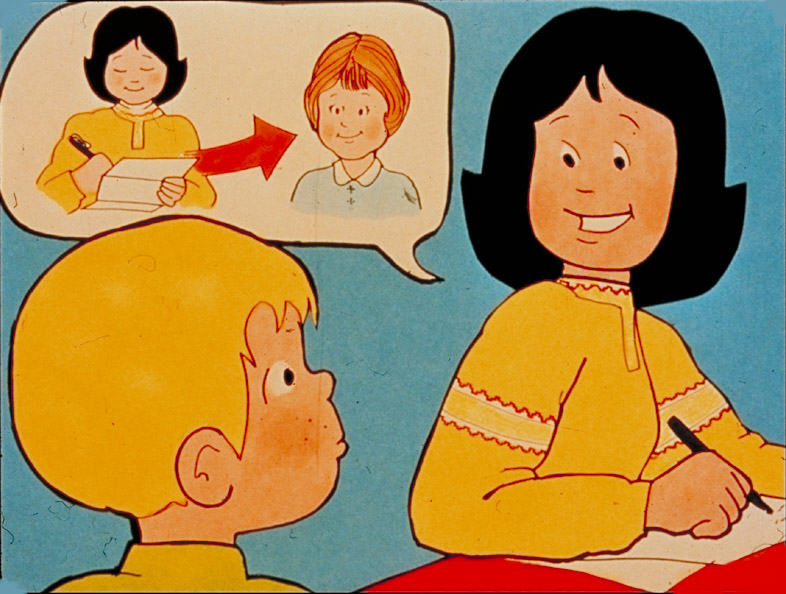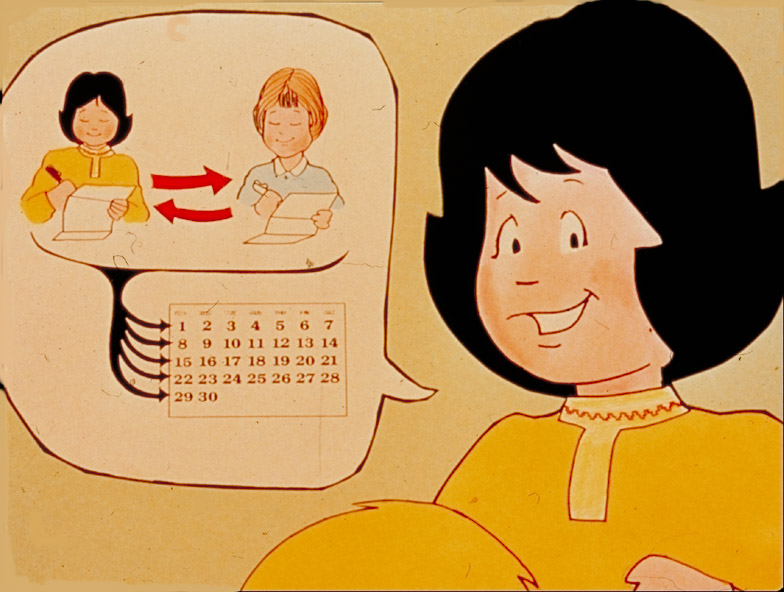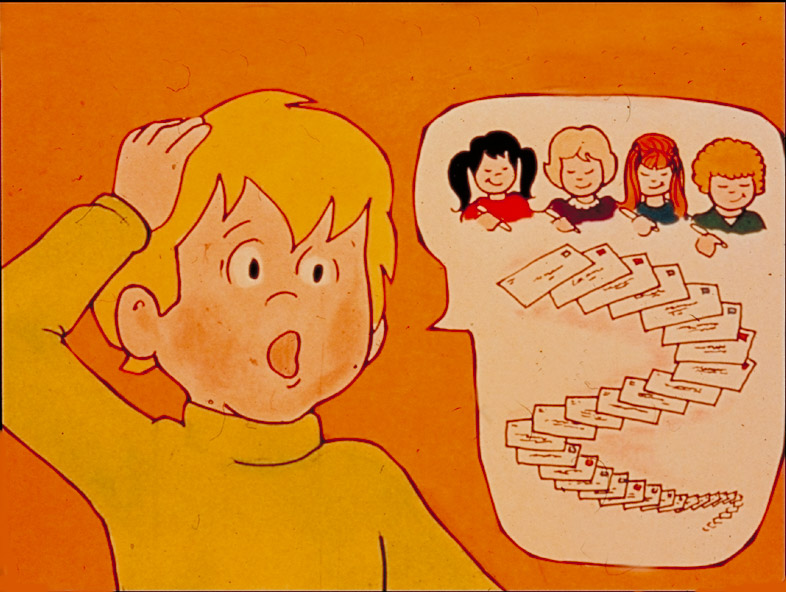
This lesson focuses on conjunctions, prepositions and adverbs of time.
The conjunction але is used to create a comparison between two contrasting ideas, topics or sentences. This conjunction often links two simple sentences to create one compound sentence.
Я пишу до Тараса, але він не пише до мене.
In compound sentences, the conjunction але is preceded by a comma in order to place emphasis on the contrast in actions in each simple sentence.
VI. Exercise 4.i
Create compound sentences, using the conjunction але.
- Мама вдома. Оленка не вдома.
Мама вдома, але Оленка не вдома.
1. Тарас грає в шахи. Борис грає в шашки.
_______________________________________________
2. Іван має гроші. Маруся має квитки.
_______________________________________________
3. Роман іде на бейсбол. Тато не йде на бейсбол.
_______________________________________________
4. Лариса живе в Едмонтоні. Роман живе в Вінніпезі.
_______________________________________________
5. Марта має словник. Даруся має комп’ютер.
_______________________________________________
The Preposition до
As explained previously in this unit, the preposition до is always followed by the Genitive Case.
| Я пишу листа до Лариси. |
 |
|
The Preposition у (в)
The preposition у(в) is used with more than one case, depending on the structure of the sentence. In this unit, this preposition has been used with both the Locative and Accusative cases.
у (в) + місцевий відмінок
Лариса живе в Едмонтоні. Богдан живе в місті.
у (в) + знахідний відмінок
Одарка пише в понеділок. Пан Балан пише в п’ятницю.
VI. Exercise 4.ii
Practise using these prepositions in the exercises which follow.
Де вони живуть?
|
1. |
Де живе пан Жук? (Оттава)
____________________________________________________
|
|
|
2. |
Де ви живете? (Торонто)
____________________________________________________
|
|
|
3. |
Де живуть дід і баба? (Саскатун)
____________________________________________________
|
|
|
4. |
Де ми живемо? (Ванкувер)
____________________________________________________
|
|
|
5. |
Де Лариса живе? (Едмонтон)
____________________________________________________
|
|
|
6 . |
Де я живу? (Монреаль)
____________________________________________________
|
|
|
7 . |
А де ти живеш? (Вінніпеґ)
____________________________________________________
|
|
|
8 . |
Де вчитель живе? (Гамільтон)
____________________________________________________ |
Коли вони пишуть? |
1. |
Коли баба пише листа? (вівторок )
____________________________________________________
|
|
|
2. |
Коли тато грає в теніс? (субота )
____________________________________________________
|
|
|
3. |
Коли дівчата йдуть додому? (неділя )
____________________________________________________
|
|
|
4. |
Коли Іван й Олеся пишуть листи? (понеділок )
____________________________________________________
|
|
|
5. |
Коли мама йде на спорт? (середа )
____________________________________________________
|
|
|
6. |
Коли хлопці йдуть на концерт? (п’ятниця )
____________________________________________________
|
|
|
7. |
Коли ми граємо в карти? (четвер )
____________________________________________________ |
|
|
Adverbs of Time
The dialogue Оленка пише introduces you to adverbs of time. These adverbs indicate the frequency of an action which is taking place.
Two important nouns, день (day) and тиждень (week) are used to form the adverbs presented in this Unit. By adding the prefix що to these words, they change their form to become adverbs of time.
що + день = щодня (every day)
що + тиждень = щотижня (every week)
| Ми пишемо листи щотижня. |
 |
|
In the dialogue, you were also introduced to the phrase так часто (so often) which indicates frequency of action.
| Справді! Лише дівчата пишуть так часто! |
 |
|
Several other adverbs were introduced in Unit VI. They are highlighted below in the context of the dialogue.
лише (only)
справді (really, truly)
певно (of course ...)
Справді ? Лише дівчата пишуть так часто! |
 |
|
Певно, що пише! |
 |
|
|






